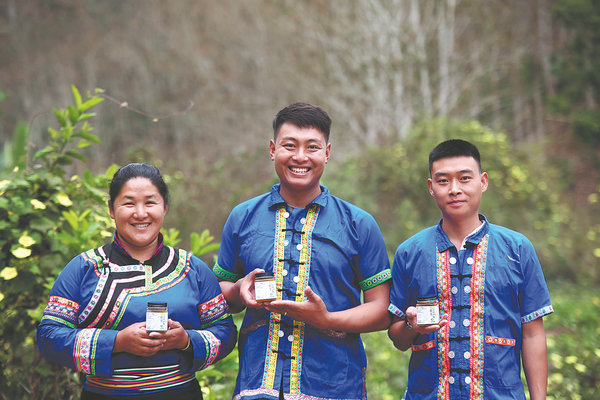

The project includes measures such as planting eco-friendly fruit and nut orchards as a substitute for rubber, and setting up photovoltaic power equipment. They are designed to transform the neighborhood into a center of biodiversity conservation, energy saving and rural vitalization.
Zhang Xiyan, vice-president and secretary-general of the Xishuangbanna Tropical Rain Forest Conservation Foundation, describes rubber tree forests as "green deserts". He explains that because of the plants' extreme water demand, which causes soil erosion, other plants can barely survive around them.
The rubber tree undermines the diversity of the rainforest, which serves the important wider ecological function of absorbing carbon dioxide. Replacing rubber trees with fruit trees allows villagers to diversify the region's floral profile and stockpile more forest resources to soak up emissions.
The project offers villagers economic opportunity while at the same time planting the concept of environmental protection into the underlying logic of rural development.
During the 12th Philanthropy Festival, which was held in December in Shanghai, the Asian Elephant Protection project won the 2022 Project of the Year Award. IFAW was selected as Organization of the Year for helping animals and people thrive together.